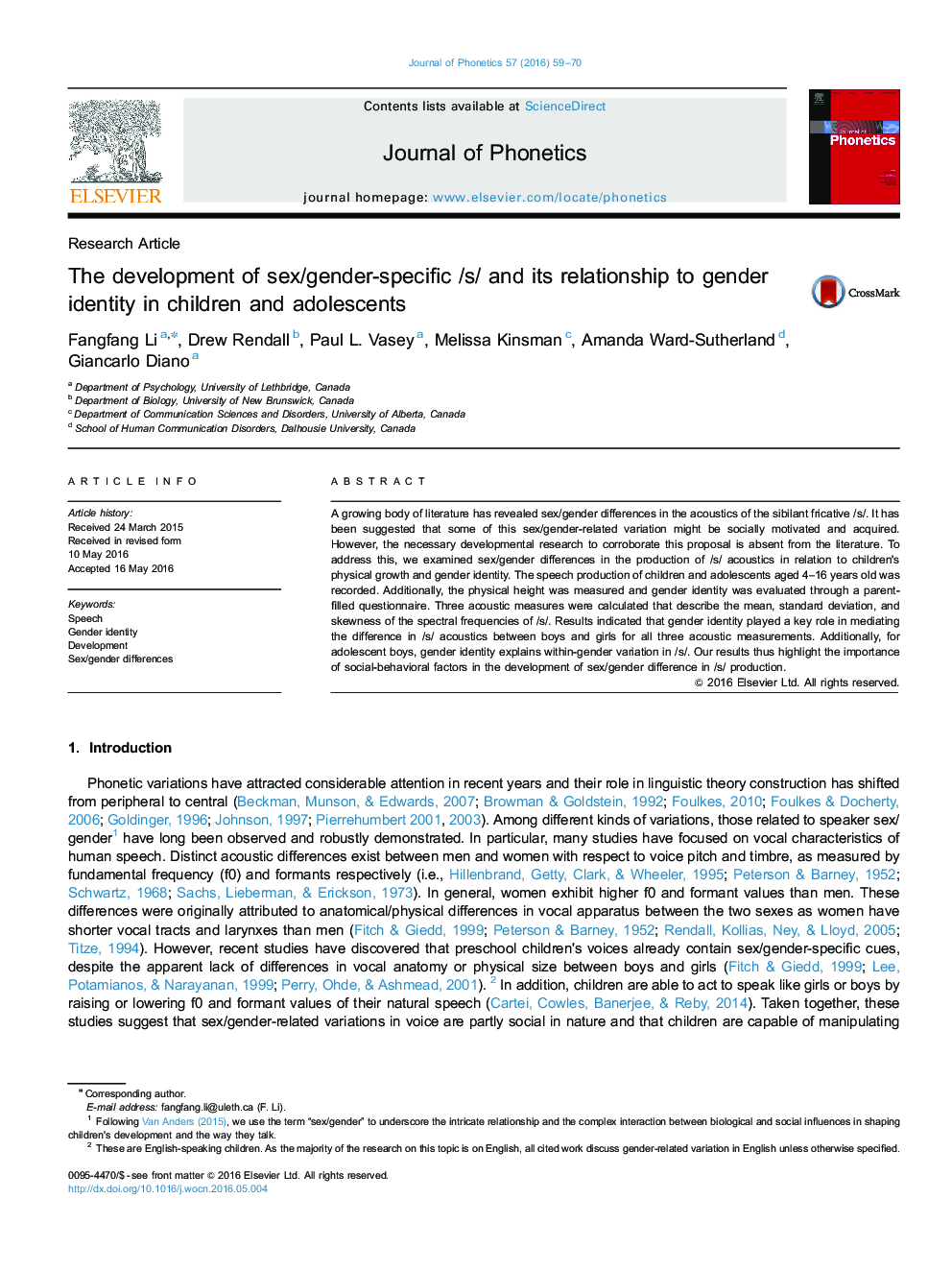| Article ID | Journal | Published Year | Pages | File Type |
|---|---|---|---|---|
| 7532821 | Journal of Phonetics | 2016 | 12 Pages |
Abstract
A growing body of literature has revealed sex/gender differences in the acoustics of the sibilant fricative /s/. It has been suggested that some of this sex/gender-related variation might be socially motivated and acquired. However, the necessary developmental research to corroborate this proposal is absent from the literature. To address this, we examined sex/gender differences in the production of /s/ acoustics in relation to children׳s physical growth and gender identity. The speech production of children and adolescents aged 4-16 years old was recorded. Additionally, the physical height was measured and gender identity was evaluated through a parent-filled questionnaire. Three acoustic measures were calculated that describe the mean, standard deviation, and skewness of the spectral frequencies of /s/. Results indicated that gender identity played a key role in mediating the difference in /s/ acoustics between boys and girls for all three acoustic measurements. Additionally, for adolescent boys, gender identity explains within-gender variation in /s/. Our results thus highlight the importance of social-behavioral factors in the development of sex/gender difference in /s/ production.
Related Topics
Social Sciences and Humanities
Arts and Humanities
Language and Linguistics
Authors
Fangfang Li, Drew Rendall, Paul L. Vasey, Melissa Kinsman, Amanda Ward-Sutherland, Giancarlo Diano,
